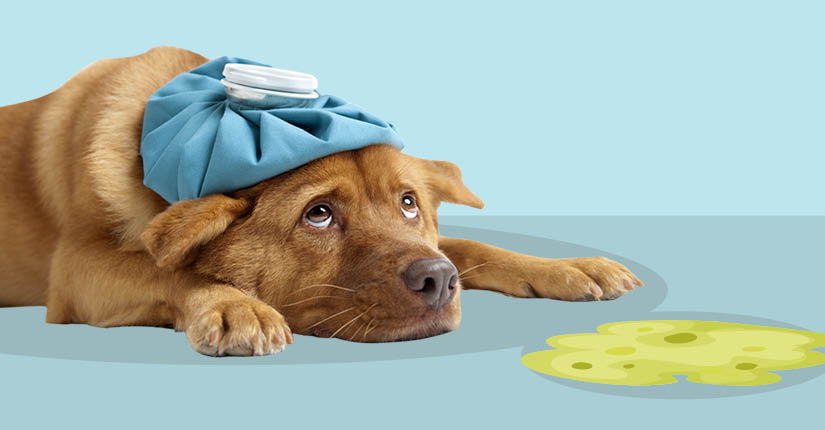If you’re a dog owner, then dealing with your dog being sick is one of the necessary responsibilities – the flip side of the walks, games and companionship your pet normally provides. If your dog has diarrhea and vomiting at the same time, it’s even harder to deal with – and more dangerous for your pet!
Today we’re looking at how you can treat a dog that’s being sick, and put a stop to the vomiting as soon as possible.
Risks
There are several key risks to be aware of when you’re monitoring a dog that’s being sick (or has diarrhea). While most cases are straightforward and will clear up quickly, they could also be an indicator that something else is wrong or provide a different risk to your dog’s health into the bargain.
Look out for –
- Blood in the vomit or faeces
This is a sure sign something is wrong and you should make an emergency vet appointment without delay.
- Dehydration
If your dog can’t hold down food and is regularly vomiting or suffering diarrhea, then they’re depleting their fluid reserves with no way to replenish them. However long your dog’s attack of vomiting lasts, and whatever has caused it, make sure they have access to lots of fresh water. You can even buy canine rehydration sachets from your vet to help them replenish their vital electrolytes as well.
- Time
Most ordinary attacks of vomiting pass in a few hours or days, but if it lasts longer than 48-72 hours, then something else might be wrong – and even if it’s not, your dog could be at risk of serious dehydration and starvation! This time shortens if your dog is showing any other symptoms of illness: lethargy, aggression or shyness. The more symptoms and behaviour changes they exhibit, the more likely you should call the vet.
Caring for a Sick Dog
When you have a vomiting dog on your hands, the most important thing to do is help them control that vomiting! It makes life easier for you, and is much safer for them. The most helpful thing you can do is carefully manage the amount of food that you feed your dog. It is important to offer your dog some food little and often. This is because the lining of the gut needs nutrients to help it heal, which it gets directly from the food inside it. rice. Small amounts of chicken and rice, or a commercial intestinal diet, are easily digestible and nutritious and should help the dog to recover more quickly, without further upsetting their stomach.
If, after 6-8 hours, your dog is still unable to hold down even bland food then you should consider a vet’s appointment without delay. Puppies and young dogs should be taken to a vet sooner because they are more at risk of problems if they have low blood sugar levels. With Bivvy pet insurance, you can add coverage for your puppies and dogs’ regular vet expenses.










